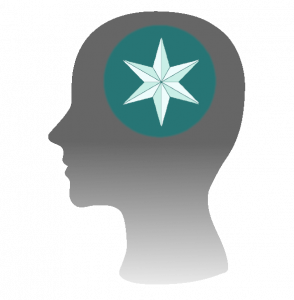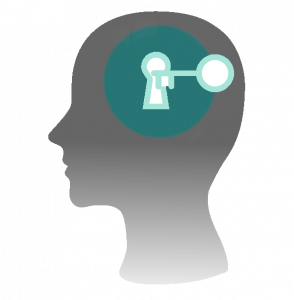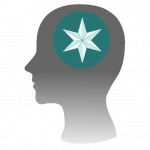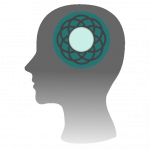CBT
Cognitive Behaviour Therapy
Research has shown Cognitive Behaviour Therapy (CBT) to be effective for many psychological issues such as depression, anxiety, anger, addictions, chronic pain, low self esteem etc. Furthermore, CBT has been found to be as effective as medication alone in treating depression and certain anxiety disorders. The skills learnt in therapy have long term benefits as you can use these for the rest of your life to help to keep symptoms of anxiety and depression away, thus preventing a recurrence in the future.
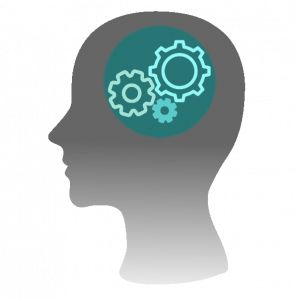
Some of the issues that CBT has been shown to help people with include:
- Anger
- Anxiety and panic attacks
- Depression
- Persistent pain
- Post-traumatic stress
- Sleep problems
- Phobias
- Obsessive-compulsive disorder
So, what is CBT?
CBT is a structured, goal-focused and time-limited approach where client and therapist work together to identify and understand problems in the here and now. CBT helps increase our understanding regarding the relationship between our thoughts, feelings, and behaviour and is based on the premise that the way we feel is strongly influenced by our behaviour and thoughts. For example, if you believe that when your heart rate speeds up you are going to have a heart attack, you may then start avoiding situations where this happens, take deep breaths, or monitor your body for changes in your heart rate to prevent it from happening again. While this may work in the short-term, unfortunately, in the long run it will reinforce those unhelpful thoughts and behaviours and the negative cycle that develops.
CBT aims to break this cycle by teaching people to recognize their unhelpful thoughts and beliefs, develop more balanced and realistic ones (not to be confused with positive thinking) and modify any unhelpful behaviour that keeps the cycle going. Other skills taught in CBT may include gradual exposure to situations in which you have difficulty, problem-solving, assertiveness, and relaxation skills (such as breathing exercises). The main aim of CBT is to teach you to become your own therapist, providing you with the skills and strategies to deal with and overcome your problems.

CBT
Cognitive Behaviour Therapy
Research has shown Cognitive Behaviour Therapy (CBT) to be effective for many psychological issues such as depression, anxiety, anger, addictions, chronic pain, low self esteem etc. Furthermore, CBT has been found to be as effective as medication alone in treating depression and certain anxiety disorders. The skills learnt in therapy have long term benefits as you can use these for the rest of your life to help to keep symptoms of anxiety and depression away, thus preventing a recurrence in the future.
Some of the issues that CBT has been shown to help people with include:
- Anger
- Anxiety and panic attacks
- Depression
- Persistent pain
- Post-traumatic stress
- Sleep problems
- Phobias
- Obsessive-compulsive disorder
So, what is CBT?
CBT is a structured, goal-focused and time-limited approach where client and therapist work together to identify and understand problems in the here and now. CBT helps increase our understanding regarding the relationship between our thoughts, feelings, and behaviour and is based on the premise that the way we feel is strongly influenced by our behaviour and thoughts. For example, if you believe that when your heart rate speeds up you are going to have a heart attack, you may then start avoiding situations where this happens, take deep breaths, or monitor your body for changes in your heart rate to prevent it from happening again. While this may work in the short-term, unfortunately, in the long run it will reinforce those unhelpful thoughts and behaviours and the negative cycle that develops.
CBT aims to break this cycle by teaching people to recognize their unhelpful thoughts and beliefs, develop more balanced and realistic ones (not to be confused with positive thinking) and modify any unhelpful behaviour that keeps the cycle going. Other skills taught in CBT may include gradual exposure to situations in which you have difficulty, problem-solving, assertiveness, and relaxation skills (such as breathing exercises). The main aim of CBT is to teach you to become your own therapist, providing you with the skills and strategies to deal with and overcome your problems.

CBT
Cognitive Behaviour Therapy
Research has shown Cognitive Behaviour Therapy (CBT) to be effective for many psychological issues such as depression, anxiety, anger, addictions, chronic pain, low self esteem etc. Furthermore, CBT has been found to be as effective as medication alone in treating depression and certain anxiety disorders. The skills learnt in therapy have long term benefits as you can use these for the rest of your life to help to keep symptoms of anxiety and depression away, thus preventing a recurrence in the future.
Some of the issues that CBT has been shown to help people with include:
- Anger
- Anxiety and panic attacks
- Depression
- Persistent pain
- Post-traumatic stress
- Sleep problems
- Phobias
- Obsessive-compulsive disorder
So, what is CBT?
CBT is a structured, goal-focused and time-limited approach where client and therapist work together to identify and understand problems in the here and now. CBT helps increase our understanding regarding the relationship between our thoughts, feelings, and behaviour and is based on the premise that the way we feel is strongly influenced by our behaviour and thoughts. For example, if you believe that when your heart rate speeds up you are going to have a heart attack, you may then start avoiding situations where this happens, take deep breaths, or monitor your body for changes in your heart rate to prevent it from happening again. While this may work in the short-term, unfortunately, in the long run it will reinforce those unhelpful thoughts and behaviours and the negative cycle that develops.
CBT aims to break this cycle by teaching people to recognize their unhelpful thoughts and beliefs, develop more balanced and realistic ones (not to be confused with positive thinking) and modify any unhelpful behaviour that keeps the cycle going. Other skills taught in CBT may include gradual exposure to situations in which you have difficulty, problem-solving, assertiveness, and relaxation skills (such as breathing exercises). The main aim of CBT is to teach you to become your own therapist, providing you with the skills and strategies to deal with and overcome your problems.

